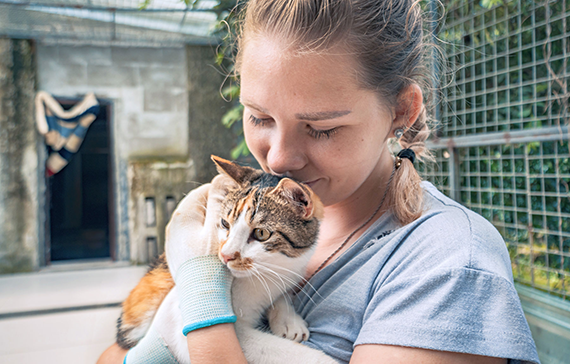
An estimated 1.1m homeless cats and dogs in the UK are living in shelters or on the street, and the problem will get worse before it gets better.
That’s the verdict of a new study – The State of Pet Homelessness Index – launched by Mars Petcare in partnership with an advisory board of leading animal welfare experts.
The survey reveals how there are several challenges for Britons looking to get a pet, such as prohibitive rental agreements, with almost two thirds (63%) of the general population reporting it to be difficult to own a dog when you live in an apartment.
Stigmas against adopting specific breeds of dogs is also part of the problem, with over half (58%) of prospective pet owners saying they would not buy or adopt a Pitbull because they’re perceived as an aggressive breed.
The report also identified issues with negative perceptions of animals from shelters and stray populations, with 36% of people revealing they would not consider adopting from a shelter and a quarter (25%) believing that stray dogs are a danger to them.
Kim Smet, interim general manager at Mars Petcare UK, said: “We’ve worked for years to address pet homelessness in pursuit of our purpose – a better world for pets – implementing a wide range of programmes, including responsible pet owner education, challenging misconceptions around shelter adoption, and providing shelter support.
“Until now, there was no way to measure and track the scale of the issue comprehensively in UK. That’s why we are proud to share the State of Pet Homelessness Index, so that anyone working towards this goal can measure the impact of their work in shelters and with stray cats and dogs. We know this is just the start and welcome additional input and insights from organisations who also want to help end pet homelessness.”
The index currently includes nine countries – the US, UK, India, Mexico, Germany, Russia, South Africa, China and Greece. It is based on data from over 200 global and local sources, with each country receiving an overall tally between zero and 10 – where 10 means no pet homelessness exists. UK’s current index tally is seven.
Jeffrey Flocken, president of Humane Society International, commented: “Companion animals are a source of comfort and unwavering affection for us, and we believe they deserve the love and care they need to thrive.
“I’m hopeful the index can be used by animal welfare organisations and policy makers, pet professionals, academics and researchers to better understand the scale and factors influencing the issue and to point towards the most impactful interventions.
“At Humane Society International, we are ultimately aiming to reduce the time companion animals spend in shelters before finding their forever homes, and prevent them from being relinquished or abandoned – and this index will inform our ongoing efforts to do just that.”
Claire Bessant, chief executive of International Cat Care, added: “This global index is a great first step in understanding the complexity of pet homelessness so we can better address the issue and focus solutions in a way that will help inform us about the issue.
“The index has helped highlight that a feline-specific approach to cat homelessness is essential in tackling this issue – something we at International Cat Care are committed to advancing. Many people don’t realise there are important differences between the needs of homeless cats and dogs. The index findings can help us further explore areas of support and action with these factors in mind.”


